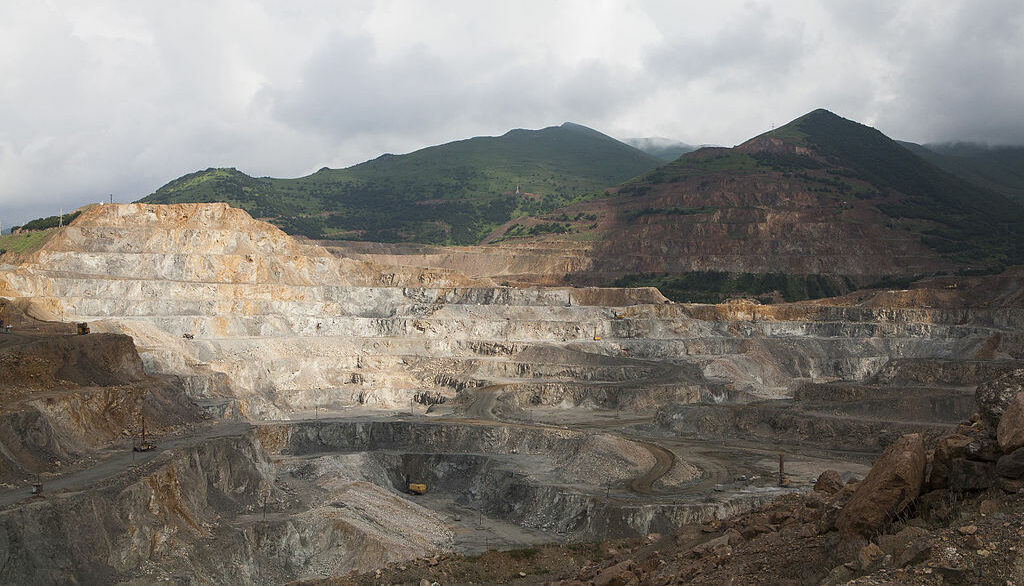Does China want to get its hands on Turkey’s rare earths?

Turkey has discovered the second largest rare earth deposit in the world. Experts raise some doubts about the quality of the reserves, but there are foreign companies – including Chinese – already interested. All the details
Last month, Turkish President Recep Tayyip Erdogan announced the discovery in Eskisehir, northwestern Turkey, of the second largest rare earth deposit in the world: 694 million tons. However, the experts immediately raised doubts about the quality of the reserves, and therefore about their economic potential.
FOREIGN INTEREST IN TURKISH RARE LANDS
Serkan Keleser, general manager of Eti Maden – is the state-owned mining company that will be involved in the extraction of rare earths in Eskisehir -, however, told Middle East Eye that the deposit will undoubtedly provide a strategic advantage to Turkey, allowing it to become a important actor in a market dominated by China : Beijing controls about 80 per cent of the world supply of rare earths, holding a sort of monopoly on the refining of raw minerals (essential for their use).
Rare earths are a group of metallic elements used to produce electronic devices, automobiles, and weapon systems, among other things.
According to Keleser, “you can tell if a mineral reserve is valid by looking at the interest it receives. We have several proposals from large companies based in China, Japan and the United States to work with us on this mine ”.
EXPLORATIONS IN ESKISEHIR
That Eskisehir's subsoil contained rare earths had long been known, but the deposits were believed to be small. Geological explorations resumed in 2011, and more than 59,000 samples have been collected since then. Turkey's energy minister Faith Donmez said ten of the seventeen rare earth elements were found in the area.
GLOBAL TIMES MINIMIZE DISCOVERY …
However, the announcement was met with some skepticism, both in Europe and in China.
The Chinese tabloid Global Times , linked to the Communist Party, published two articles to downplay the Turkish discovery. In the first, he argued that China is "the only country" in the world with a "complete industrial chain" for the production of rare earths.
– Read also: What China will do to maintain dominance over rare earths
As mentioned, the extraction of rare earths is not sufficient for industrial use: the raw minerals must be transformed into oxides, phosphors, alloys or magnets through a complex, expensive and potentially very polluting process.
… BUT INVITES TURKEY TO CONTACT CHINA
In the second, less negative article, the Global Times reported the opinion of a Chinese expert in the sector who invited Turkey to enter into an agreement with China, which would provide it with the technical expertise necessary for the exploitation and marketing of rare earths.
NUMBERS AND CRITICISM
The Turkish Ministry of Energy estimates that it will produce 10 thousand tons of rare earth oxides, plus 72 thousand tons of barite, 70 thousand tons of fluorite and 250 tons of thorium (an important element for nuclear technologies). According to critics, 10 thousand tons of rare earths is too low a quantity to change the balance of a sector whose annual global production amounts to 280 thousand tons.
Serkan Keleser disagrees. A Middle East Eye says the Eskisehir discovery "will give us a competitive advantage, a strategic advantage, since rare earth elements are used in fifth generation fighter jets and electric cars." He then explained that “we will first establish a pilot plant until the end of 2022, and then move on to industrial production. We have our production targets, but we could still grow ”.
NOT ONLY RARE LANDS
The pilot plant will have a processing capacity of 1200 tons of minerals per year: not only rare earths (including neodymium for magnets; three tons) but also barite (used in the oil and pharmaceutical industry; three hundred tons) and fluorite (used in steelmaking; 365 tons).
LEARNING TIMES
Keleser said Turkey will have to learn the process of working with rare earth minerals, and it could take years. “However”, he added, “if we decide to get help by signing an agreement for the transfer of know-how with an experienced foreign company, the time could be significantly shortened. This too is a choice ”.
He added that Turkey, beyond the pilot plant, may have to spend up to $ 2-3 billion to set up an industrial-grade manufacturing plant.
This is a machine translation from Italian language of a post published on Start Magazine at the URL https://www.startmag.it/energia/turchia-terre-rare-cina/ on Mon, 08 Aug 2022 10:26:15 +0000.
